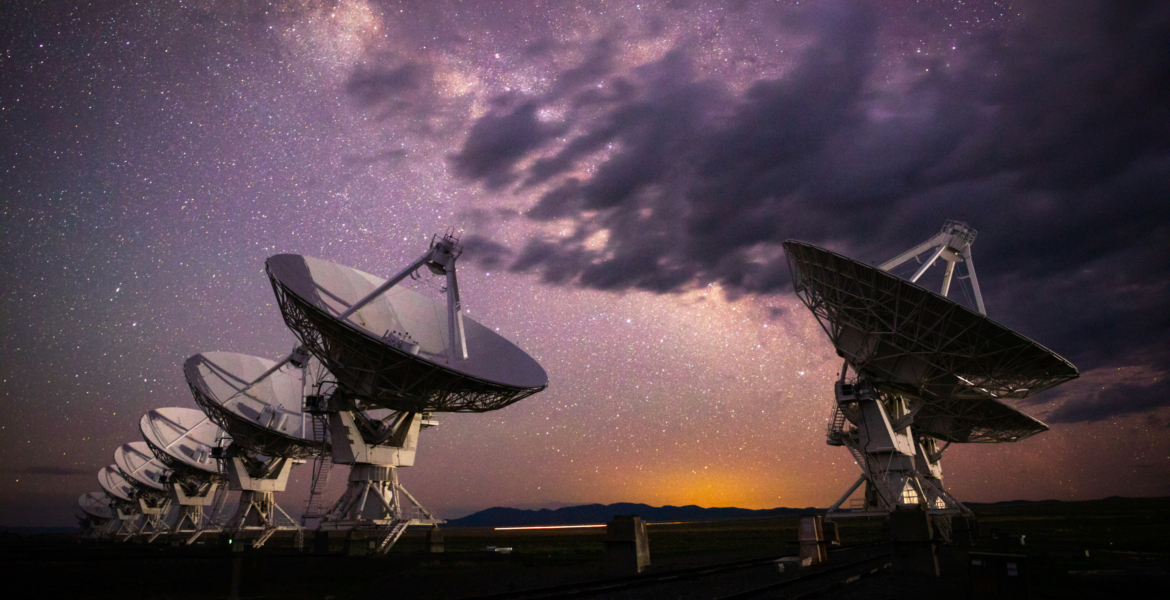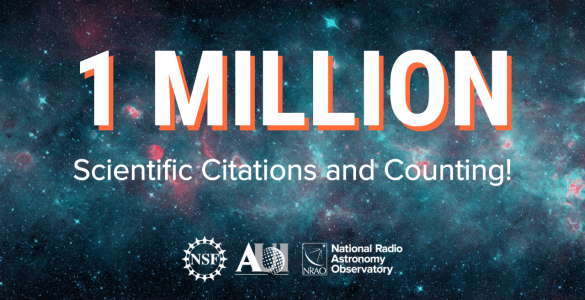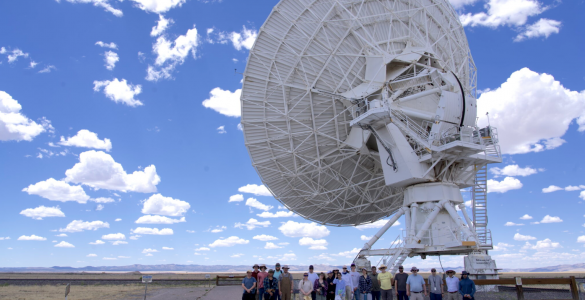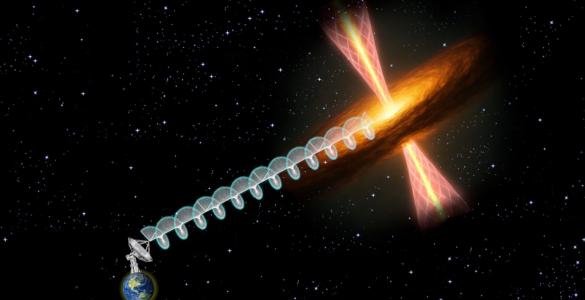Scientists and engineers from the U.S. National Science Foundation National Radio Astronomy Observatory (NSF NRAO) and Lonestar Data Holdings (Lonestar) are teaming up to explore the future of radio astronomy on Earth—and in space.
Since its founding in 1956, the NSF NRAO has helped pioneer the technology of interferometry, the use of several radio telescopes observing at once, dramatically improving what can be seen by a single dish. In recent years, interferometry was made famous by images of supermassive black holes, captured by the international network of instruments in the Event Horizon Telescope, which the NSF NRAO has supported on several projects.
Today, the NSF NRAO continues to lead the field of interferometry through the NSF Karl G. Jansky Very Large Array, the NSF Very Long Baseline Array, its role in the Atacama Large Millimeter/submillimeter Array, along with technology produced by its Central Development Laboratory, and data processing. Meanwhile, start-up Lonestar has been developing and testing revolutionary new space-based radio astronomy technology, launching several assets over the past year.
Lonestar and the NSF NRAO recognize the significant potential of combining terrestrial and space-based radio astronomy capabilities. “Among the many opportunities this partnership offers, we’re hoping to achieve unprecedented resolution and sensitivity using our existing telescopes with Lonestar’s new space-based instruments,” shares NSF NRAO Director Tony Beasley, “With the support of the U.S. National Science Foundation, and oversight from Associated Universities, Inc., this project will show the real potential of public and private partnerships to fuel innovation in radio astronomy.”
This new partnership between the NSF NRAO and Lonestar will not only experiment with terrestrial and space-based interferometry, but data sharing and analysis, the development of new radio technology, and education and outreach to the public, maximizing all the resources this team has to offer.
About NRAO
The National Radio Astronomy Observatory (NRAO) is a facility of the U.S. National Science Foundation, operated under cooperative agreement by Associated Universities, Inc.
About Lonestar Data Holdings (Lonestar)
Lonestar Data Holdings is a pioneering U.S.-based company that offers a groundbreaking approach to data storage and security. Lonestar will operate space-based assets via secure ground stations to create an independent network for trusted commercial services. Lonestar provides resilient data storage solutions, that are compliant with data-sovereignty requirements, and are designed to protect critical information from cyberattack, natural disaster, and nation-state threats. Lonestar is at the forefront of merging Cloud and Space technologies and was founded by a team of experts to pioneer a future for data at the edge. The company is backed by remarkable investors, including Scout Ventures, 2 Future Holdings, Seldor Capital, the Veteran Fund, Irongate Global Capital, Atypical Ventures, Kittyhawk Ventures, and Backswing Ventures.











